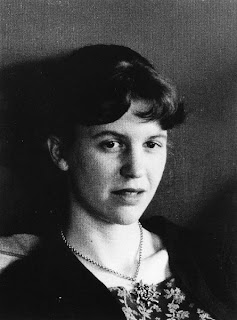Confessional poetry is often associated with intimate autobiographical matters and boldly discusses sensitive topics such as suicide, depression, childhood trauma, drug use, and alcoholism. This type of poetry was unrecognized until the work of Anne Sexton, Robert Lowell, and Sylvia Plath in the 1950s and 1960s.
Most confessional poets have experienced mental breakdowns and have attempted suicide. Both Sylvia Plath and Anne Sexton committed suicide by carbon monoxide poisoning at early ages.
Confessional poetry was used to treat psychological illnesses. The essence of psychotherapy is disclosing the clandestine through writing. Confessional poets write about themselves because it allows them to discover and express their true feelings in a safe place. Thus, their poems often show their most cryptic and dark thoughts.
Before committing suicide, Sylvia Plath wrote:
“Dying is an art.
“Dying is an art.
Like everything else,
I do it exceptionally well.
I do it so it feels like hell.
I do it so it feels real.
I guess you could say I have a call.”
Her obsession with death can be traced back to her father’s passing when she was eight years old. In her poem “Daddy”, which she wrote on October 12, 1962, shortly before her death, she described her father as a “black shoe, In which I have lived like a foot”, a "Nazi" (her father was German), and "a vampire who drank her blood for seven years". In the poem, she claimed that she had killed both her father and the symbol of him created in the text, thus successfully getting revenge. She struggled to forgive him in the end, crying “Daddy, daddy, you bastard, I’m through”.
One possible explanation for such feelings towards her father is that he had low tolerance for his children. Their relationship was based on academic performance. Sylvia tried to exact his love and recognition by excelling in school; however, her father’s death ultimately rendered such efforts futile.
Many readers are unprepared when they first encounter confessional poetry and are embarrassed or uncomfortable due to its largely outrageous content. Many find Charles Bukowuski’s “The Girl on the Bus Stop Bench” obscene and offensive (warning: this poem is sexually explicit in nature):
“the wind flipped her skirt
high along her thighs
and I began rubbing myself.
just before her bus came
I climaxed.
I smelled my sperm
felt it wet against my shorts
and pants.”
Don’t be embarrassed; confessional poetry is all about honest confession. The old adage “words are therapeutic” might sound cliche, but putting one's words to paper can be a relief to their conscience. Try writing your own confessional poems; you may uncover some of your own hidden thoughts, bringing you closer to making sense of your feelings.

No comments:
Post a Comment